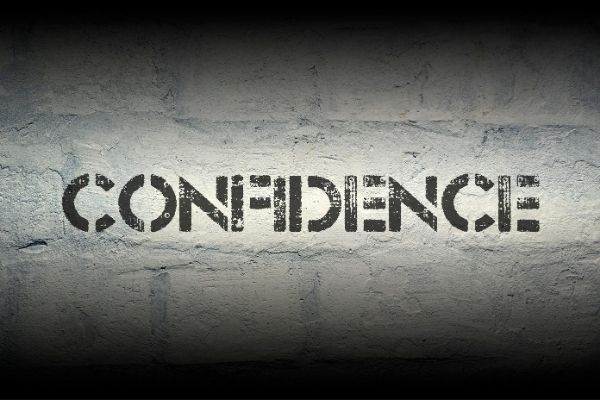Disclaimer: This post may contain affiliate links, meaning we get a small commission if you make a purchase through our link at no extra cost to you. For more information, please visit our Disclaimer Page.
Ever feel like everyone around you is confident while you’re stuck second-guessing yourself?
If you’ve been holding back in relationships, work, or even everyday conversations, you’re not alone in that struggle.
There are real, doable ways to boost confidence and self esteem—and they don’t require you to fake it or pretend to be someone you’re not.
In this guide, we’re diving deep into the world of self-esteem and self-confidence—those internal superpowers that help you navigate life’s challenges.
By the end, you’ll have practical strategies to boost your self-worth and build lasting confidence that withstands life’s ups and downs.
I’ll show you practical shifts that actually work.
Table of Contents
Understanding Self-Esteem and Confidence: Building Blocks for a Confident You
Self-esteem and confidence are often used interchangeably, but they play distinct roles in shaping our well-being and how we navigate the world.
What Are Self-Esteem and Self-Confidence?
Self-esteem is your overall opinion of yourself—your sense of self-worth and value.
Think of it as the foundation of your emotional house. It’s built on three key pillars:
- Self-acceptance: This is about embracing your flaws and imperfections, recognizing that they are part of what makes you unique and human. It’s about letting go of the need to be perfect and appreciating yourself as you are.
- Self-love: This involves treating yourself with kindness, compassion, and understanding, just as you would a loved one. It’s about prioritizing your needs, setting healthy boundaries, and celebrating your successes.
- Self-worth: This is the deep-rooted belief in your inherent value and worthiness, regardless of your achievements or external validation. It’s about recognizing that you are deserving of love, respect, and happiness simply because you exist.
Self-confidence, on the other hand, is your belief in your ability to succeed in specific situations.
It’s that “I can do this” feeling that propels you to take on challenges, step outside your comfort zone, and pursue your goals.
While self-esteem is the foundation, self-confidence is the outward expression of that belief in yourself.
It’s the fuel that empowers you to take action and achieve your dreams.

Ever feel like your confidence meter bounces more than a basketball? One minute you’re on top of the world, and the next you’re questioning everything about yourself? Don’t worry—you’re definitely not alone in this roller coaster ride of self-perception.
Understanding the Difference: Self-Esteem vs. Self-Confidence
Before we jump into solutions, let’s get clear on what we’re talking about. People often use these terms interchangeably, but they’re actually distinct concepts:
Self-Esteem is your overall opinion of yourself—how much you like, value, and accept yourself as a person. It’s that internal voice that judges whether you’re “good enough” compared to others. Your self-esteem starts developing in childhood and evolves throughout your life experiences.
Self-Confidence is your belief in your abilities, skills, and judgment in specific situations. You might be highly confident in your professional skills but less so in social settings. Confidence grows through practice and positive experiences.
As Psychology Today explains, you can be great at something (high self-confidence) but still doubt your overall worth (low self-esteem).
Understanding this difference is crucial because building each requires slightly different approaches.
Why Healthy Self-Worth Matters
Why put effort into improving your self-esteem and confidence? Because the benefits ripple through every aspect of your life:
- Enhanced well-being: When you value yourself, you naturally take better care of your physical and mental health
- Resilience: You bounce back faster from setbacks and challenges
- Better relationships: You can set healthy boundaries and recognize when relationships aren’t serving you
- Increased achievement: You’re more likely to pursue goals and take necessary risks
- Greater life satisfaction: You enjoy more moments rather than constantly questioning your worth
As researcher Kristin Neff has discovered through her work, people with healthy self-esteem are more likely to try new things, take calculated risks, and recover more quickly from failures—all crucial elements for a fulfilling life.
Signs that you need a confidence boost
Low self-esteem often hides in everyday habits. Here’s how to spot it—and start addressing it:
- Negative self-talk: You frequently criticize your appearance, choices, or skills. Phrases like “I’m not good enough” or “I’ll never succeed” become routine. For strategies to reframe this, explore how to practice self-love.
- Self-doubt and fear of failure: You avoid challenges or goals because “What if I fail?” overpowers “What if I succeed?” This mindset keeps you stuck in your comfort zone.
- Difficulty accepting compliments: You deflect praise or downplay achievements. A simple “Thank you” feels impossible, signaling a belief you’re unworthy of recognition.
- People-pleasing tendencies: You prioritize others’ needs over your own, even when exhausted. Saying “yes” becomes automatic, while “no” feels selfish.
- Sensitivity to criticism: Feedback—even constructive—feels personal. You might dwell on it for days. Learn healthier ways to process critiques in how to handle judgment.
- Constant comparisons: You measure your life against others’ highlight reels, feeling “less than.” Break this cycle with tips from how to stop comparing yourself.
- Feeling unworthy: You believe happiness or success isn’t meant for you. This can lead to self-sabotage, like quitting opportunities before trying.
How Low Self-Worth Shows Up
When your self-esteem is struggling, it manifests in various ways:
- Negative thought patterns: Your inner critic becomes louder and more persistent
- Avoidance behaviors: You shy away from challenges or opportunities
- Social withdrawal: You might isolate yourself to avoid judgment
- Performance issues: Your abilities at work or school might suffer
- Communication challenges: Standing up for yourself becomes difficult
- Relationship problems: You might accept poor treatment or struggle with intimacy
6 Effective Ways to Boost Confidence and Self Esteem
Building confidence is a journey, not a sprint—but these actionable strategies will help you grow stronger every day:
1. Silence Your Inner Critic
- Challenge negativity: Swap “I’m terrible at this” with “I’m learning—progress matters.”
- Practice self-compassion: Treat yourself like a friend. “Struggling is human—I’m doing my best.”
- Track wins: Keep a “strengths journal” and revisit it when doubt strikes.
2. Take Bold, Small Steps
- Expand your comfort zone: Start with tiny risks (e.g., speak up in a meeting).
- Set SMART goals: Break big dreams into steps (Example: “Join one networking event this month”).
- Learn relentlessly: Skills = confidence fuel. Try platforms like Skillshare or Toastmasters.
3. Cultivate a Support Squad
- Surround yourself with encouragers: Optimism is contagious—avoid energy drainers.
- Set boundaries: Say “no” to protect your peace.
- Seek feedback: Ask mentors, “What’s one thing I can improve?”
4. Stop Chasing Approval
- Own your voice: Years ago, I let critics silence me—now I prioritize my truth.
- Spend time alone: Confidence blooms when you trust yourself.
5. Befriend Discomfort
- Practice until it’s power: Nervous about public speaking? Start with mini-talks to friends.
- Reframe nerves: Channel anxiety into preparation (“This energy means I care!”).
6. Celebrate Every Win
- Track progress: Even tiny victories (“I spoke up today!”) build momentum.
- Reflect on resilience: “I survived past challenges—I can handle this.”
4. The Four P’s That Influence Confidence
Understanding these four factors can help you systematically build stronger confidence:
- Preparation: Being well-prepared for challenges reduces anxiety and boosts confidence
- Practice: Regular practice builds competence, which directly feeds confidence
- Positivity: Maintaining an optimistic mindset helps you overcome obstacles
- Persistence: Continuing despite setbacks builds resilience and lasting confidence
Confident Body Language: The Outside-In Approach
Your physical posture and movements don’t just express confidence—they can actually help create it:
Body Posture That Projects Confidence
- Stand tall with shoulders back
- Maintain comfortable eye contact
- Use open gestures (avoid crossed arms)
- Speak clearly and at a measured pace
Research by social psychologist Amy Cuddy suggests that adopting powerful postures can actually change your hormone levels and make you feel more confident. Try standing in a “power pose” for two minutes before challenging situations.
Applying Strategies in Specific Areas
Building Confidence at Work
- Identify your professional strengths and find ways to use them more often
- Seek regular feedback from supervisors or mentors
- Document your achievements to review when doubts arise
- Prepare thoroughly for challenging tasks or presentations
Boosting Social Confidence
- Start with small social interactions and gradually challenge yourself
- Prepare conversation starters or topics in advance
- Bring a supportive friend to new social situations
- Focus on being interested rather than interesting
Confidence-Building for Introverts
If you’re more introverted, building confidence might look different:
- Honor your need for recharge time
- Leverage your listening skills and thoughtfulness
- Prepare for social situations to reduce anxiety
- Find environments where your natural strengths shine
Improving Body Confidence
- Focus on what your body can do rather than how it looks
- Practice gratitude for your body’s functions and abilities
- Diversify your media consumption to include different body types
- Choose clothes that make you feel comfortable and confident
Rebuilding Confidence After Setbacks
Everyone faces failures and disappointments. The key is how you respond:
- Allow yourself to feel: Process emotions rather than suppressing them
- Avoid overgeneralizing: One setback doesn’t define your entire self-worth
- Identify lessons: What can you learn from this experience?
- Create a comeback plan: Small, achievable steps to rebuild momentum
- Seek support: Don’t isolate yourself during difficult times
Indicators of Strong Self-Esteem
How do you know if your self-esteem is improving? Look for these signs:
- You can accept both compliments and criticism gracefully
- You’re willing to try new things and take appropriate risks
- You can express your needs and opinions confidently
- You don’t need constant validation from others
- You recover more quickly from disappointments
- You celebrate others’ successes without feeling threatened
When to Seek Support
Sometimes, we need professional guidance to address deeper self-esteem issues:
- When low self-esteem persists despite your efforts
- When it significantly interferes with daily functioning
- When it’s connected to depression, anxiety, or other mental health conditions
- When it stems from trauma or abuse
Working with a therapist can help you address root causes and develop personalized strategies. Approaches like cognitive-behavioral therapy (CBT) are particularly effective for self-esteem issues.
Quick Confidence-Building Exercises
Need an immediate confidence boost? Try these quick exercises:
- The achievement reminder: Write down three things you’ve accomplished today, no matter how small
- The posture reset: Stand tall, shoulders back, head high for two minutes
- The gratitude shift: List three things you’re grateful for about yourself
- The compliment collection: Keep a file of positive feedback you’ve received
- The fear challenge: Do one small thing that scares you
Your Self-Esteem Journey: Final Thoughts
Building healthy self-esteem and confidence is an ongoing practice, not a destination. There will be ups and downs, and that’s completely normal.
What matters is your commitment to treating yourself with kindness and challenging old patterns of thinking.
Remember that you’re worthy of love and respect simply because you exist—not because of what you achieve, how you look, or what others think of you.
That unconditional self-worth is the foundation upon which lasting confidence is built.
What’s one small step you can take today to boost your self-esteem? Perhaps it’s challenging a negative thought, practicing a power pose, or reaching out to a supportive friend.
Whatever it is, know that each positive action creates momentum toward the confident, authentic person you’re becoming.
You’ve got this! ✨
What strategies have helped you build confidence? Share your experiences in the comments below!






